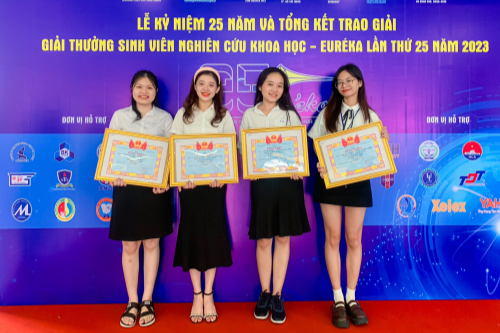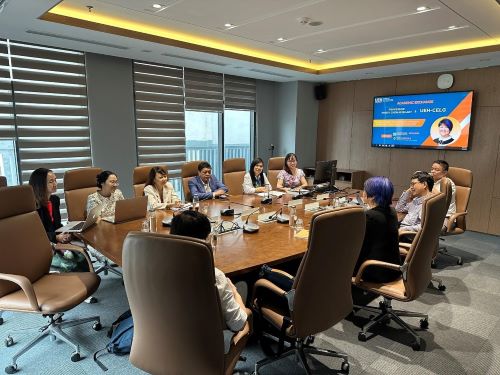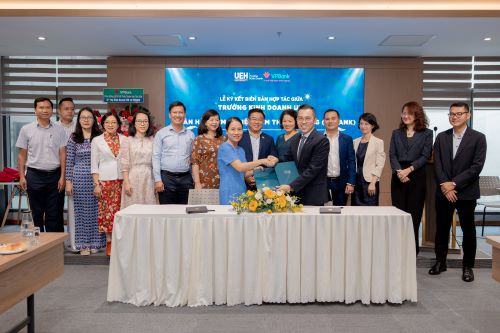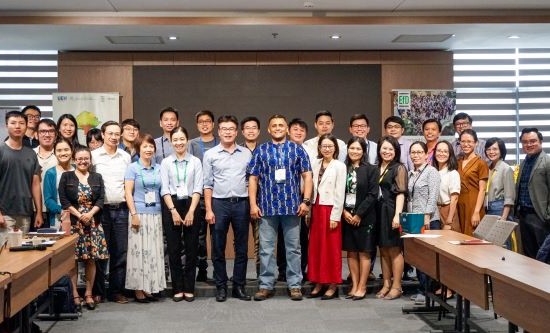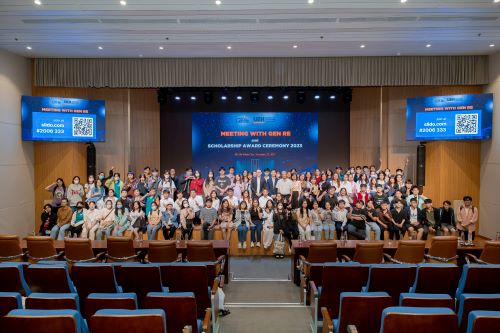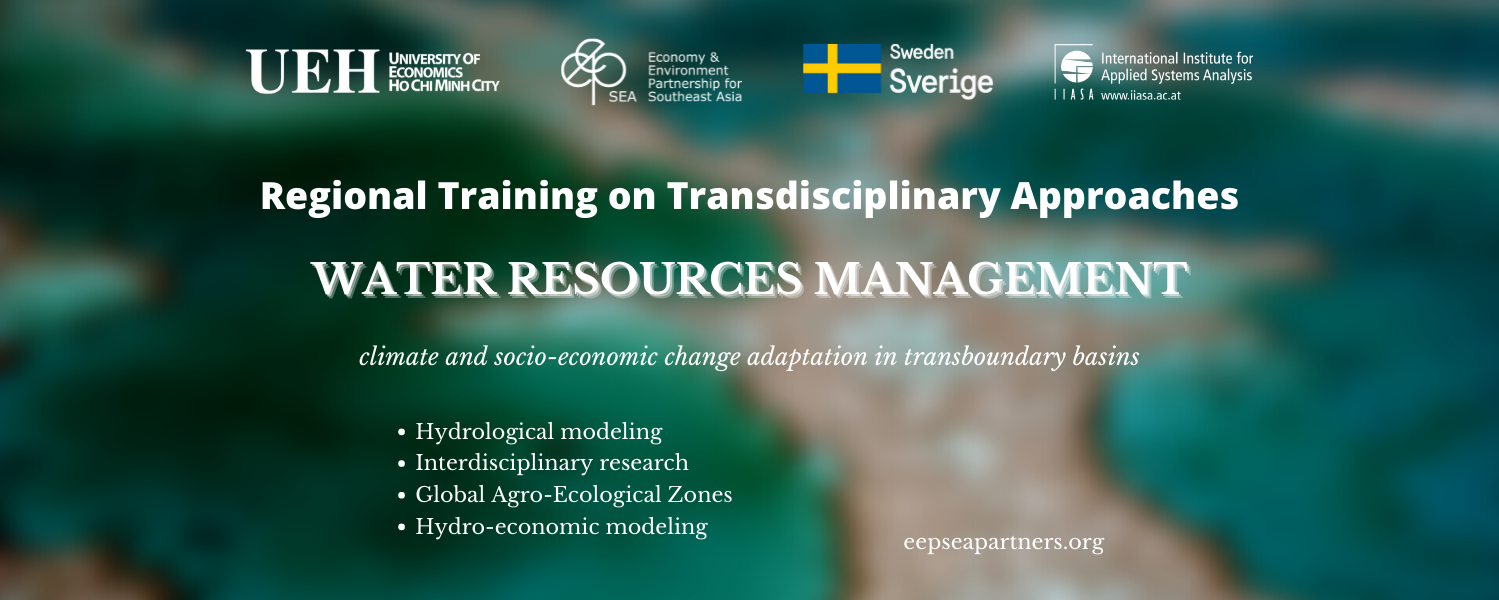
- 12 Oct 2021
- 2021
Regional Training on Transdisciplinary Approaches - Water Resources Management: Climate and Socioeconomic Change Adaptation in Trans-boundary Basins
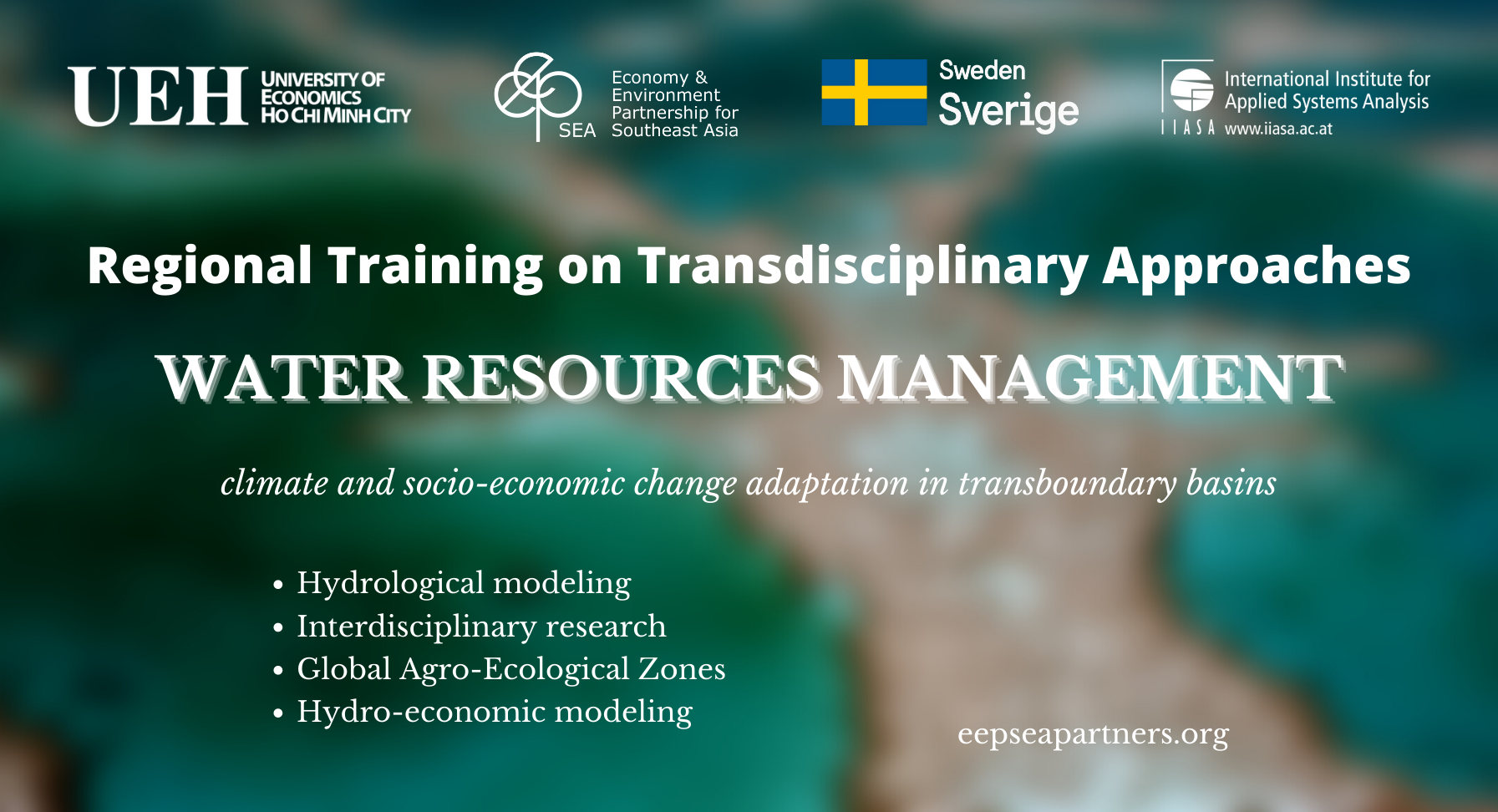
The Economy & Environment Partnership for Southeast Asia (EEPSEA) from University of Economics Ho Chi Chi Minh City (UEH) is calling for your application for the regional training grants on trans-disciplinary approaches together with economics to be applied in environmental management.
WATER RESOURCES MANAGEMENT: CLIMATE AND SOCIOECONOMIC CHANGE ADAPTATION IN TRANS-BOUNDARY BASINS
DESCRIPTION: This 3-day workshop will strengthen participants’ knowledge on development and use of models and systems analysis approaches, to better understand current and future issues surrounding water resource management under climate change involving climate, hydrological and economic modeling tools. The workshop also involved a mixture of presentations, practical ‘hands-on’ sessions with selected models, in order to place the work in the Southeast Asian region and its specific circumstances.
RESOURCE PERSONS: International Institute for Applied Systems Analysis (IIASA)
DATES: 12th, 14th, 19th October 2021, 4 hours each day. (Dates are subject to change)
VENUE: Virtual via Zoom
LEARNING OBJECTIVES
- Participants will have a sufficient understanding of the processes involved in interdisciplinary research on water resources management under climate change involving climate, hydrological and economic modeling tools.
- Participants will have a basic/theoretical understanding of climate and hydrological modeling plus hands-on experience in hydro-economic modeling.
- Participants will have an understanding of an interdisciplinary research proposal to evaluate water resources issues under climate change.
- Participants will have a basic/theoretical understanding of hydrological modeling with CWatM, hands-on experience in hydro-economic modeling and be able to use a basic setting for the Mekong River.
- Participants will have some time after each session for training and homework
- Participants will get a Certificate from IIASA and EEPSEA after some final exam homework
- Participants working on their PhD will be introduced to the IIASA YSSP program and might apply for summer 2022 or 2023
RESOURCE PERSON
The International Institute for Applied Systems Analysis (IIASA)
The workshop will be facilitated and supported by IIASA, an independent, international research institute with National Member Organizations in Africa, the Americas, Asia, and Europe. Founded in 1972, IIASA conducts policy-oriented research into problems of a global nature that are too large or too complex to be solved by a single country or academic discipline.
Resource persons of the course are a team of IIASA scholars, led by Dr. . Dr. Peter Burek is a research scholar of the Water Security Research Group – Biodiversity and Natural Resources Program. His main field of interest is hydrological modeling but with a strong focus on integrated modeling. Two examples for this integrated approach are the Belmont Forum FUSE project: //fuse.stanford.edu and the GEF, UNIDO, IIASA project ISWEL //www.iswel.org
COURSE OUTLINE
-
Basics of hydrological modeling:
- Understanding the model chain from representative concentration pathways (RCPs) to hydrological modeling to economic optimization
- Basics (hands-on exercise) of CWatM
- Basics of interdisciplinary research (proposal development/writing)
- Basics of Global Agro-Ecological Zones //gaez.fao.org/
- Hydro-economic modeling, hands-on exercise with GAMS & ECHO
Software:
- CWatM is programmed mainly in Python. It is not necessary to have experience in programming or the programming language Python. You can either execute CWatM as executable or Python source code together with a text file, containing the essential information (where are the data, what catchment, what period of time, etc.). IIASA distributes and update CWatM as Python source. Therefore, it is a plus to have a basic understanding of GitHub and Python.
- CWatM comes as an open-source, free of charge model and data
- Hydro-economic modeling is using the commercial software GAMS . But for education, we use the free of charge test version
- For Global Ecological Zones , no software is needed
- The data and software and the requirements for Python will be sent in advance, so the participants and their IT support can arrange.
HOW TO APPLY
Qualification
- Applicants should be nationals of the following Southeast Asian countries: Cambodia, Indonesia, Lao PDR, Malaysia, Myanmar, Philippines, Thailand, and Vietnam.
- Applicants must hold at least a master’s degree in economics, natural-science, physics or equivalent.
- Applicants should have basics knowledge in economic modeling and/or hydrology.
Application requirements
Application submissions should include the following:
- Detailed CV;
- Letter of application indicating:
- Expression of your academic career goals and planning.
- Where/how applicant intends to use what is learned from the course.
- Sharing your research idea (less than one page) related to the course topic
The above-mentioned requirements are requested to submit online through
Deadline of application requirements: 20 September 2021
Notification of acceptance: on or before 01 October 2021
Note: Only chosen applicants will be personally notified

